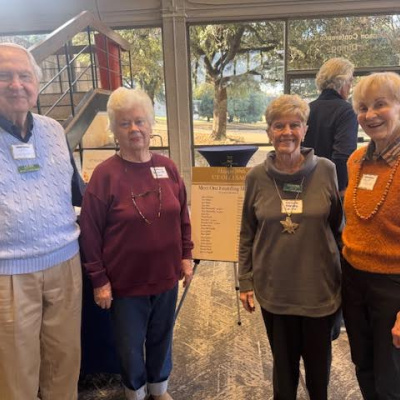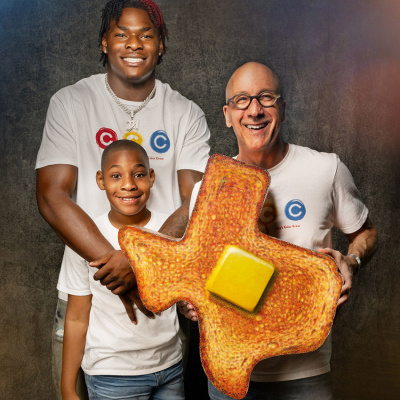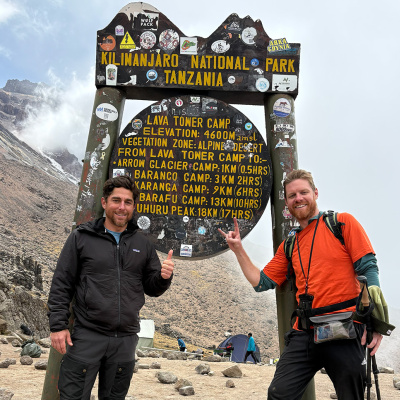UT Sociologist Harel Shapira on American Gun Culture

One in three Americans owns a gun, according to a 2015 Columbia University study. Yet the gulf between gun-owners and non-gun-owners may be wider than ever before—as anyone who has followed the acrimonious campus carry debate on the Forty Acres can attest. Amid the online vitriol, protests that balloon into media circuses, and divisive election-year rhetoric, academic research on the topic offers a refreshingly coolheaded approach.
With the support of a prestigious Carnegie Fellowship, sociologist Harel Shapira is embarking on a study of American gun culture. Shapira, who earned his PhD from Columbia University in 2010 and is now an assistant professor at UT-Austin, lived with the Minutemen along the U.S.-Mexico border for his dissertation research. Reviewers called the book that resulted, Waiting for José, "readable, entertaining, and highly articulate" and "empathetic and beautifully written." Shapira spoke about why gun schools are important, how gun ownership relates to democracy, and busting Texas stereotypes.
The Alcalde: How did you become interested in studying gun ownership?
Harel Shapira: I was born in Israel and all my family served in the military, so I wasn't completely naive to guns. But it wasn’t until traveling to Southern Arizona and spending time with the Minutemen that I myself fired a gun and got to interact with people for whom carrying a gun was an incredibly central part of their lives and for whom the Second Amendment was a key part of their identity.
Why focus on gun schools and gun ranges for this project?
They're places where people, at a very basic level, go to to learn how to use guns. Some people go just one time, usually to obtain their concealed handgun license ... but many go on to take more advanced classes. I've been going to a couple of different schools here in the Central Teas region and spending time as what we in sociology refer to as a participant-observer. I participate in the activities that gun-owners participate in, taking classes myself and obtaining a license, as well as just observing people interacting and seeing what it is that they do. And then the third component is conducting interviews with students and instructors. In many ways I’m most interested in the instructors at these schools and trying to understand how they organize their curriculums—what it means to teach people how to use guns. What are the kinds of things that they want students to learn?
What have you learned so far?
It's ongoing research and a big caveat is that I still don't have a firm answer. But I will say that these schools are places where people do a lot more than simply learn the mechanics of how to use a gun. These teachers and students are grappling with very important ideas about self-defense, about when to potentially shoot someone else. So in other words, beyond just a place where you learn how to hold a gun and load ammunition, you learn a whole lot more. You learn a way of thinking about the world, of being in the world.
There is a stereotype of a Texas gun owner as a man, probably rural and probably white, with a Confederate flag on his pickup truck. How has your experience related to this and other stereotypes about guns?
It's important not to single out Texas. There's often a narrative you hear in the Northeast about "the crazies down in Texas with their guns." But it's important to recognize that issues of gun ownership, self-defense, and gun schools exist across the Unite States. I've been spending time at a gun school outside Boston. We often think of Boston and Texas as very opposite places, but actually you find relatively similar dynamics there as well.
It's much more diverse than I expected. Gun ownership attracts a broad spectrum of the population. The culture is predominantly white and male, but women, African-Americans, and Hispanics constitute an important part of it, too. I’m interested in looking at how different groups come to participate in this culture and how their participation might mean different things, or to what extent might guns and guns culture be an arena that neutralizes differences.
You are also studying how gun ownership relates to democracy—can you talk about that?
There are important philosophical questions in terms of what the relationship is between individuals and their rights to use deadly force. This is a philosophical idea that goes back to John Locke, Thomas Hobbes, Rousseau, the founding fathers of liberal democracy from the 16th and 17th centuries. They struggle with this question of how do we mark out the boundaries, the capacity of individuals and government to use violence against others. These are deep questions we should be thinking about as a society.
Do you see your work as changing the conversation around guns at all?
One of the things I try to do through an enthnographic approach is to capture a sense of the meaning of gun ownership from the perspective of gun owners. To bring life to it, to see people and hear them, which provides a kind of depth and life to the analysis that someone from economics or statistics might not be able to give us.
Increasingly as a society, we tend to close ourselves off from people with different beliefs than our own. I hope that perhaps one thing that emerges from this book is for people who don’t have access to gun culture to learn something about it, but also for people within gun culture, that they can learn something as well.
Photo by thebarrowboy






